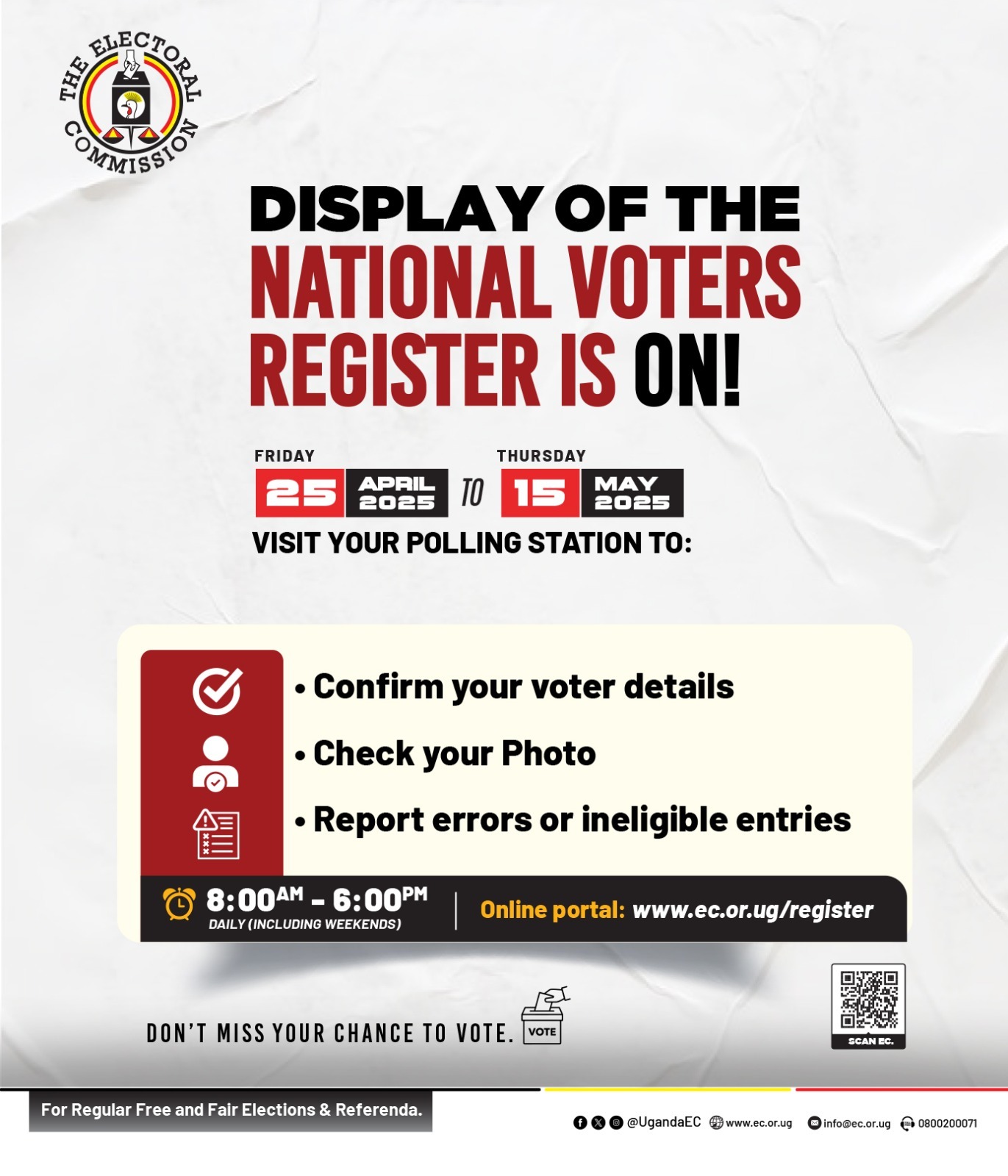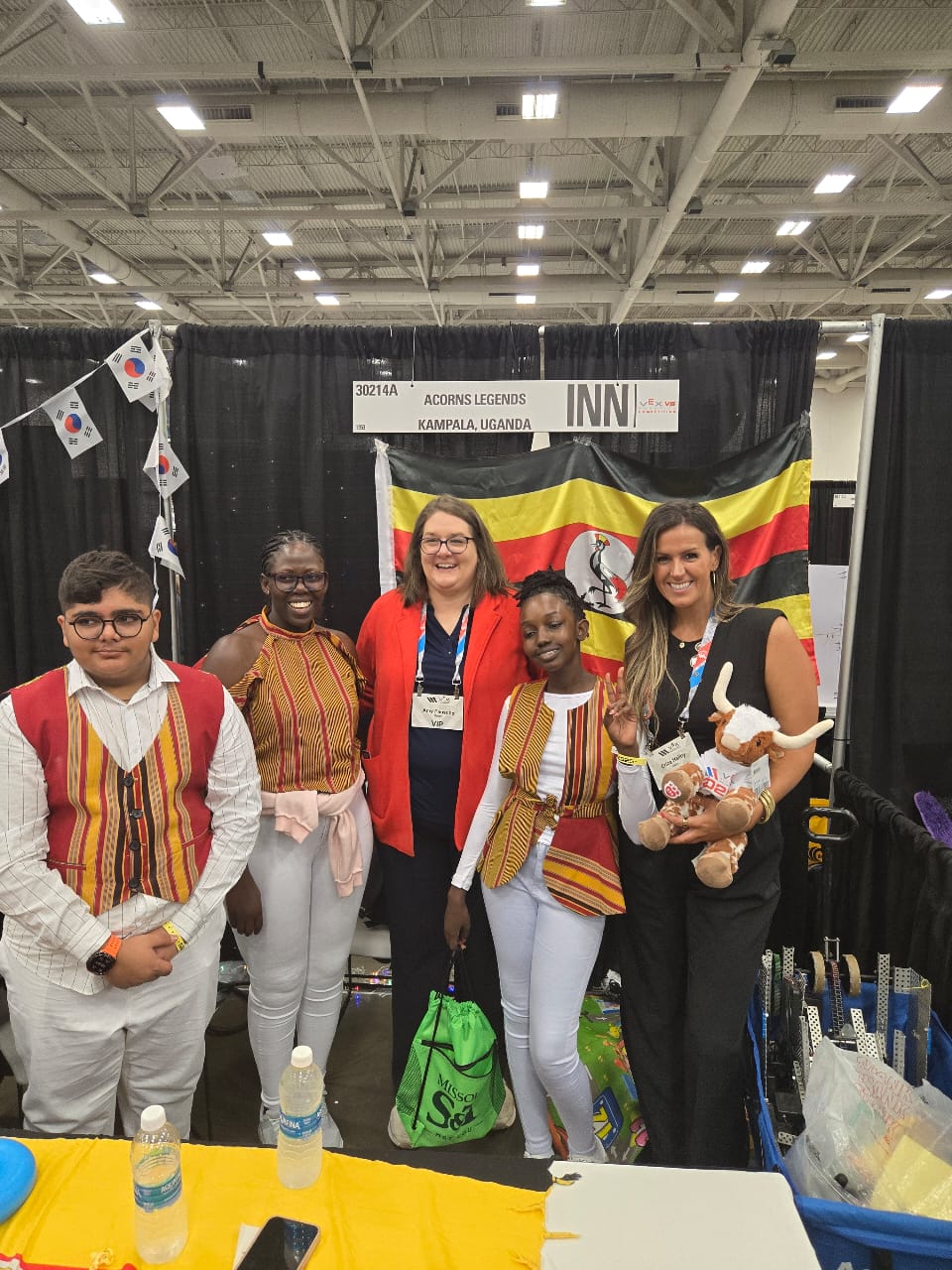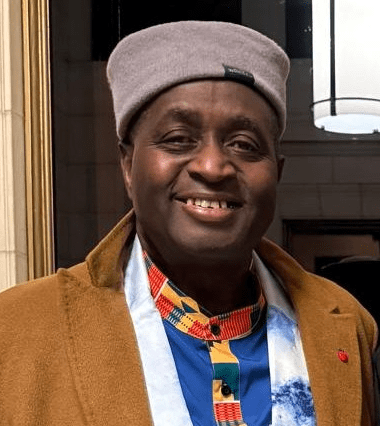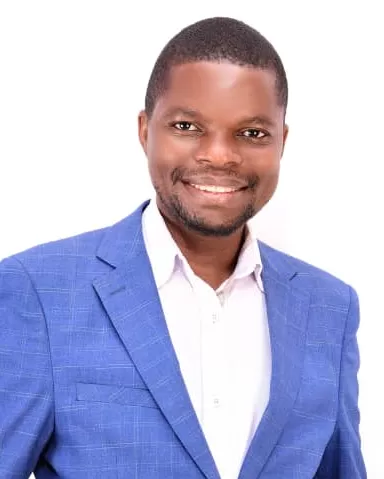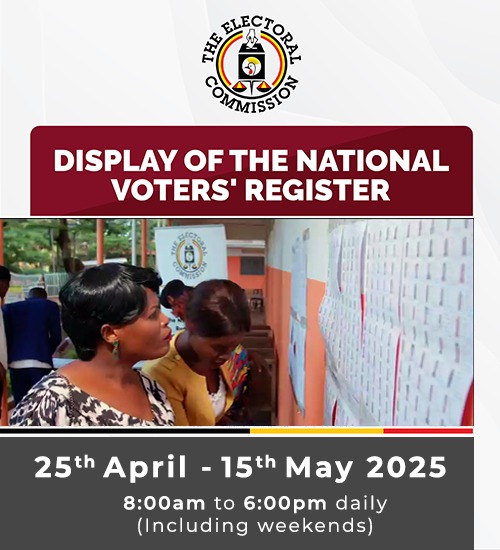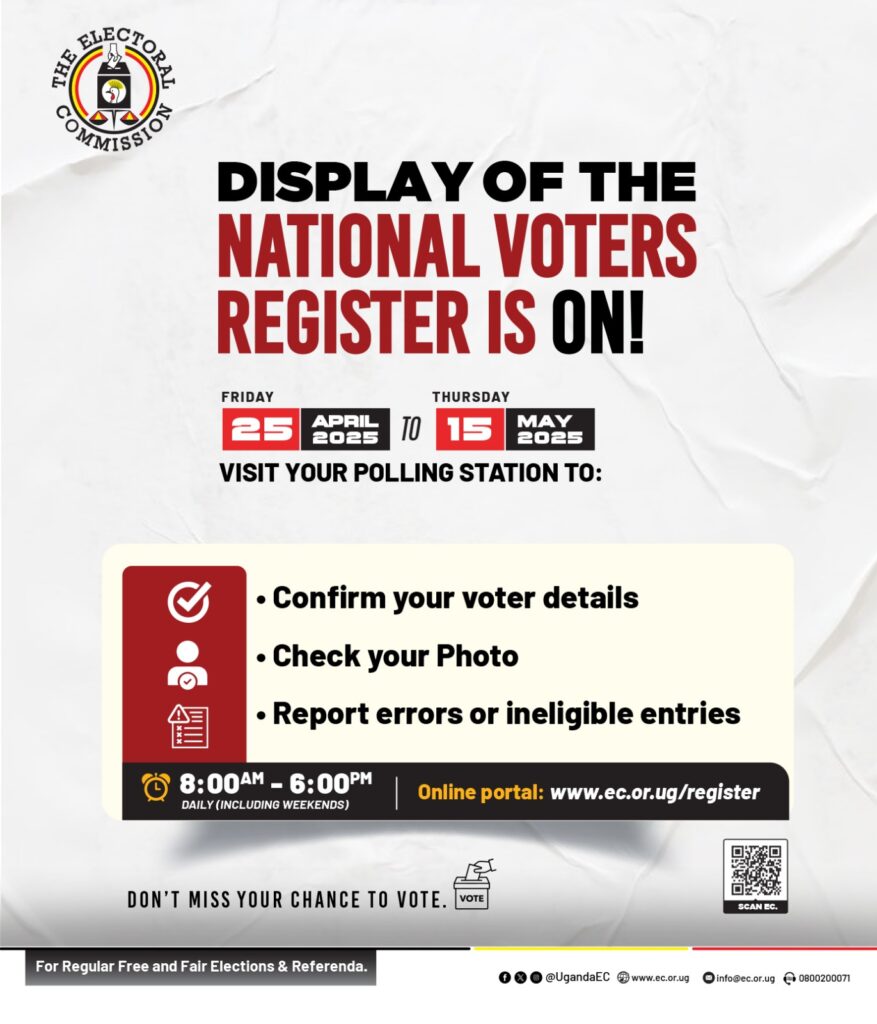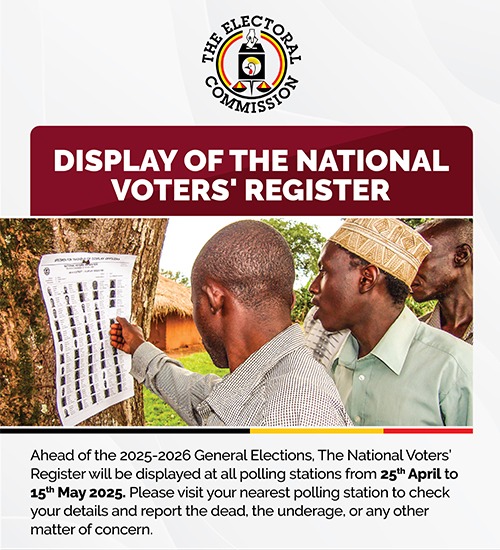Kampala, Uganda – The Ugandan Electoral Commission has unveiled a comprehensive roadmap for the upcoming 2026 elections, setting the stage for a crucial political event.
The announcement by the Commission’s Secretary, Leonard Mulekwah, indicates that the nomination of candidates for President is scheduled to occur between 2nd October and 3rd October 2025, aligning with the provisions of the Presidential Elections Act.
The electoral process in Uganda is set to take place against a backdrop of a diverse population and increasing urbanization rates.
According to the latest figures from the CIA Factbook on Uganda, the country’s population is estimated to be 47,729,952 in 2023. This population is characterized by various ethnic groups, with the largest being the Baganda, constituting 16.5%, followed by Banyankole, Basoga, and Bakiga, among others.

The significant ethnic diversity poses both opportunities and challenges for political candidates aiming to appeal to a broad range of voters with distinct cultural and regional backgrounds.
Religiously, Uganda reflects a mixed landscape, with 45.1% identifying as Protestant, 39.3% as Roman Catholic, and 13.7% as Muslim. This religious diversity has implications for political campaigns, as candidates will need to navigate various faith-based perspectives and considerations to secure support from different religious communities.
Additionally, the age structure in Uganda presents a significant factor in the electoral process. With 47.3% of the population falling under the age of 14, candidates will need to address the concerns and aspirations of the youth population effectively. Furthermore, the high literacy rate of 79% (2021) means that citizens are well-informed and educated, demanding thorough and substantive policy proposals from the candidates.
The urbanization trend, with 26.8% of the population residing in urban areas and experiencing a 5.41% annual rate of change from 2020-2025, brings forth distinct challenges and opportunities. Urban centers, particularly the capital city Kampala, which is home to 3.846 million people (2023), are critical battlegrounds for political campaigns. The concentration of urban dwellers necessitates tailored approaches to address urban issues such as infrastructure, energy, and employment.

Despite the significant urban population, electricity access remains a challenge, with 34 million people lacking access to electricity in 2020. The availability and reliability of electricity have implications for campaign strategies, as candidates need to consider how to reach constituents in both urban and rural areas, where electrification rates differ significantly.
The use of technology, particularly mobile cellular phones, is prominent in Uganda, with 66 subscriptions per 100 inhabitants (2021). This widespread mobile phone usage opens opportunities for innovative campaign strategies that can reach a broad audience, particularly the youth, who are more likely to embrace technological means of engagement.

As Uganda gears up for the 2026 elections, the complexities arising from its diverse population, urbanization challenges, and technological advancements will play a crucial role in shaping political campaigns.
Candidates will need to adopt adaptable strategies, acknowledge and address the unique concerns of various demographic groups, and embrace technology to effectively engage with voters. The forthcoming election will be a test of how political parties and candidates harness these factors to connect with the electorate and influence the democratic process in the Pearl of Africa.

